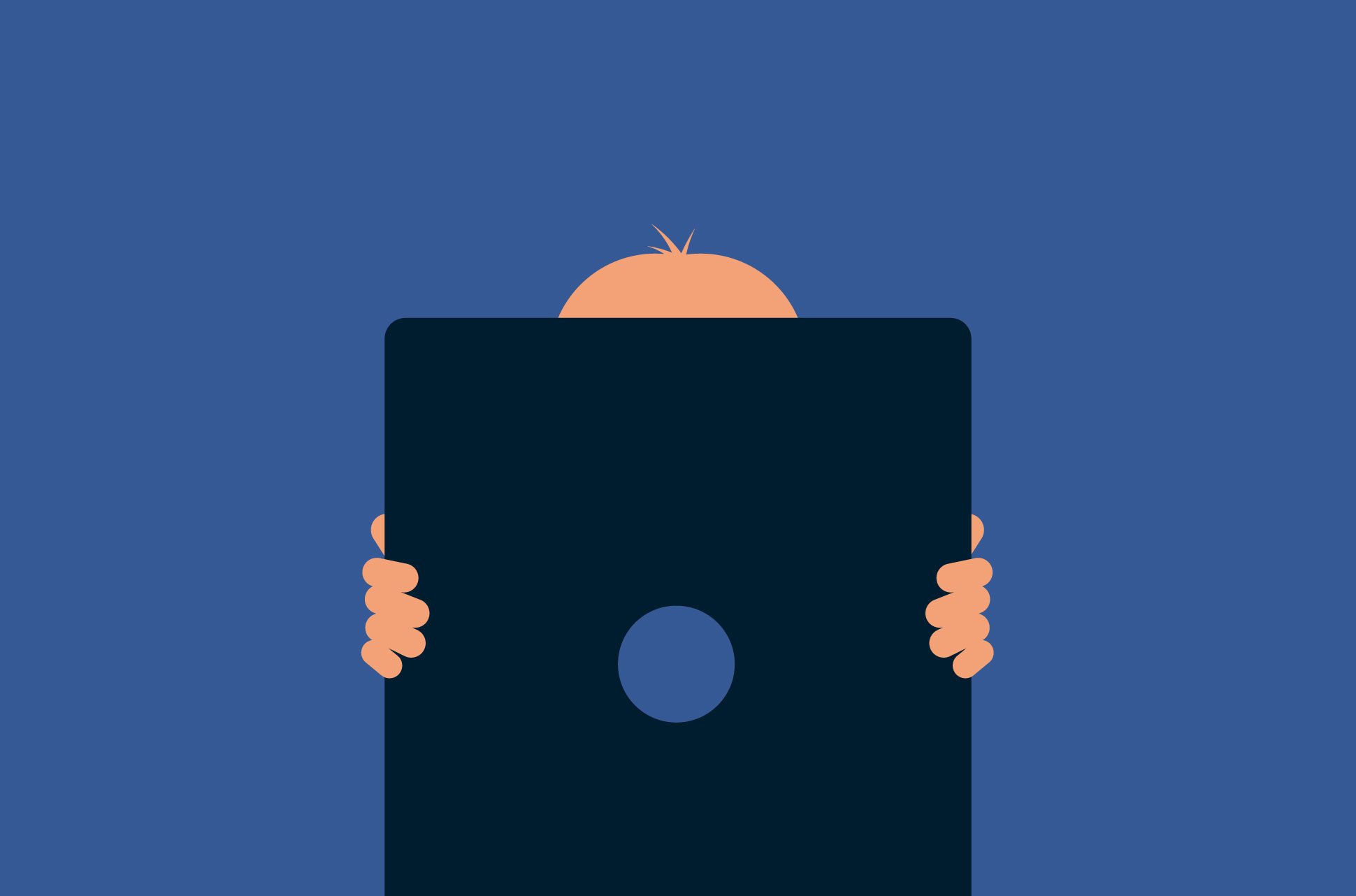
In late 2021, Netflix announced it would test a new feed for kids on its iOS app. Similar to TikTok and Instagram Reels, Kids Clips will feature short videos—but designed to be viewed in landscape (horizontally), as they are taken from Netflix’s existing library of TV shows and movies for children.
Like most streaming services, Netflix offers settings for each user account with which parents can restrict content to those suitable for a certain age group. Kids Clips is just the latest feature targeting children, with a social media bent.
Social media companies have been coming up with ways to cater their services to kids for some time. Facebook already offers Messenger Kids, a messaging platform that is not linked to a Facebook page and allows parents to control various privacy settings. Earlier last year, Facebook also announced it was building a version of Instagram for children under 13 (Instagram currently requires users to be over 13 to create an account), but it paused its plans due to public backlash.
Read more: What is Big Tech? (And why you should care)
Are there benefits to having kids’ versions of social media?
A spokesperson for Facebook told the Guardian, “Increasingly, kids are asking their parents if they can join apps that help them keep up with their friends. Right now, there aren’t many options for parents, so we’re working on building additional products that are suitable for kids, managed by parents.”
Like it or not, young kids are not just asking to use social media—they are already on social media, navigating digital environments explicitly not meant for those under 13.
While they might not officially be for kids, platforms like Instagram, TikTok, and even Twitter are used by under 13s. In a recent poll, about half of parents of children ages 10 to 12 and 32% of parents of kids ages seven to nine reported their child used social media apps in the first six months of 2021.
Sixty percent of TikTok users are in Gen Z (born between 1997 and 2012). A quick scroll on TikTok will easily reveal the general demographic of the platform’s users—it’s heavy on videos by teenagers doing dance challenges as well as parodies and reactions to current affairs.
While it sounds like a bad idea to encourage kids to use social media, given what we already know about rabid data collection and the effects on mental health, Facebook claims that providing a platform tailored to kids would give them a safer experience than not. Instagram for Kids, it said, would give parents visibility and control over kids’ use of the app.Before letting your kids use platforms overseen by social media giants, consider the alternatives. There are social media apps out there that were designed only for kids, like Spotlite, GoBubble, and Kidzworld—and they have been lauded for providing a positive space for kids to learn, play, and stay connected to friends.
Spotlite in particular has content moderators on duty around the clock to review shared photos, comments, and captions so you know kids are kept safe to a certain degree. On their site, the app claims to avoid using algorithms and has customizable parental controls for setting limits and rules on which features and sections their children can use.
What are the risks of kids on social media?
Just like adults, kids on social media such as Facebook and Instagram are giving up a lot of their privacy by indicating to Big Tech companies their preferences, locations, and more, which can be used to build profiles and target them with ads.
Anyone who is active on social media faces possible trolling, cyberbullying, and interacting with those who mean harm such as scammers or predators. But for children, the risks could be greater, given their general lower ability to judge a situation and handle their emotions.
Read more: Signs that your child is being cyberbullied
In last year’s infamous Facebook Files, a Wall Street Journal report, it was revealed that the company had known that their services were damaging to teenagers’ mental health. In our own survey, 86% of Gen Z respondents said social media had a direct impact on their happiness.
Beyond that, there’s also the risk of children stumbling upon inappropriate content. If you wouldn’t want your kids watching R-rated movies without you, you won’t want them on social media meant for adults. Your kids also likely get their news and learn about social issues from social media, while not having enough knowledge or skepticism to question if content is heavily biased or even fake.
However, social media can be educational. There are the aforementioned news and social issues. And then there is the time a 16-year-old girl in Kentucky was saved from an alleged abuser after using a hand gesture of tucking her thumb underneath four fingers, which was “known on the social media platform TikTok to represent violence at home,” according to the police. A driver recognized the gesture and alerted police, who stopped the car and found that the girl had been reported missing by her parents.
Possessing digital media literacy from a young age could also make it easier for kids to understand the basics of internet safety and understand the need for privacy online. Schools teach internet safety these days, which means kids are often even more informed about the risks than their parents.
What to look for in apps for kids
While there are numerous concerns with kids' internet use, there are a few measures that app makers can take to keep kids safe. Here are some features for parents to look for when deciding whether to let kids use apps:
1. Parental controls that are easy to find and use
2. 24/7 moderation designed to protect children
3. Minimal or no data collection and retention
What are your thoughts on apps made just for kids? Let us know in the comments!
Take the first step to protect yourself online. Try ExpressVPN risk-free.
Get ExpressVPN





Comments
This is going to be my perspective. Sorry, not sorry. But I find that Netflix, Facebook, and Instagram are controlled by wealthy oligarchs who promote anti-freethinking censorship. None of their platforms respect online anonymity, either. They are wealthy stalkers who want to train your kids into becoming impulsive consumers as adults by tracking their online activities. My perspective is that most people have lower I.Q's, are short-sighted, and don't teach their kids about reality fully by playing it safe. Which is why you end up with kids behaving like unprepared idiots when they are adults. As a result of that, it is no surprise to me when independent journalists, geniuses, unconventional writers, and activists are rare who won't be mainstream media sellouts. Netflix, Facebook, and Instagram will only dumb kids down more than older generations because they have an anti-freethinking environment from censorship. Because these wealthy oligarchs have found a way to monopolize the online world with anti-freethinking censorship and surveillance, I fear for kids' intellectual growth. The online world has become Orwellianistically monopolized by these wealthy oligarchs from what I experienced. I had more creative freedom when expressing my thoughts and feelings on popular platforms, such as YouTube, Facebook, Tumblr, etc. Now, that creative freedom has significantly decreased on them by the rise of anti-freethinking censorship. It is to only benefit wealthy oligarchs who want impulsive consumers that are spineless. It is a dystopian nightmare for genuinely unconventional writers who care about free speech and intellectual freedom. No, I am not talking about the mainstream writers who are politically correct shills to companies owned by wealthy oligarchs who want to enslave most people internationally for geopolitical control. For example, Netflix does not have real comedy. It has "comedians" who are shills. The corporate shills who own that Netflix company silence activists that want to expose political corruption and climate change caused by these wealthy oligarchs. There are genuine people that have been blacklisted from Hollywood, Netflix, and other mainstream things because they do not want to promote war propaganda from America's military-industrial complex. Owners of "United" States have grabbed Netflix by the throat violently by not letting activists use that platform to expose corrupt oligarchs who get their military puppets killed for profit via blood money while these filthily wealthy oligarchs stay alive. It is quite demonic really. But of course, Netflix will always be a shill platform where victims of war never get their justice. Because there is no justice as long as these wealthy oligarchs brainwash lower class children with dumbed down platforms that teach them a false sense of security. Which allows these wealthy oligarchs living in luxury during the pandemic to continuously have geopolitical control of our world while most people are struggling to survive when climate change and wars happen caused by these rich people who neglect others' well-being. If I was a parent, then my child would be taught what is happening in our world. Because I prefer justice rather than giving my child a false sense of security that makes them ignorantly vulnerable to wealthy predators who care about profit and power more than people's well-being. I think parents who don't let their children watch rated R movies are holier-than-thou and teaching their kids to be closed-mindedly naïve. Being naïve is how a civilization collapses and poverty begins. Civilizations are built because children are taught to grow up by understanding harsh reality and become competitively competent workers after getting proper education. Not by being spoiled brats who are very ignorant cowards that cannot handle harsh reality. Being able to separate emotions from facts is how civilization starts. Teaching children to be naïve by limiting their knowledge makes it harder for making a civilization. Children are more psychologically vulnerable than adults. That I will agree on. I was a child once. But I wanted to know what happens in this world. It is clear to me that parents who genuinely want their children thriving intellectually are rare. It is clear to me that genius children are rare, too. TikTok is an online privacy nightmare while promoting Chinese Communist Party propaganda through anti-freethinking censorship to appease China's nazi-like elite. This Chinese elite keeps lower class people in China as wage slave labor. They are training Chinese children to become anti-freethinking robots with their dehumanizing social credit score system, online surveillance, banning V.P.N's, lack of free press, etc.
Shortly: let children free to play in open air spaces with true games. Time will grab them later with 'socials'
Absolutely NOT!!!!!!!!!! Bloddy adults getting kids addicted like drug cartels. Don't any of you have any shame? Oh wait, I forgot, most humans have no shame, just predatory natures.
Okay, obviously my rant hit some trigger thing in the code here. So I'll try to be nice to bad and mean people. You need therapy for addicting kids like drug cartels but I guess if parents are okay with this then that's up to them. I just won't allow my kids to hang out with their kids because guilty by association. Bad influences like influencers. In fact, we don't hang out with many people because most humans are actually really mean animals.